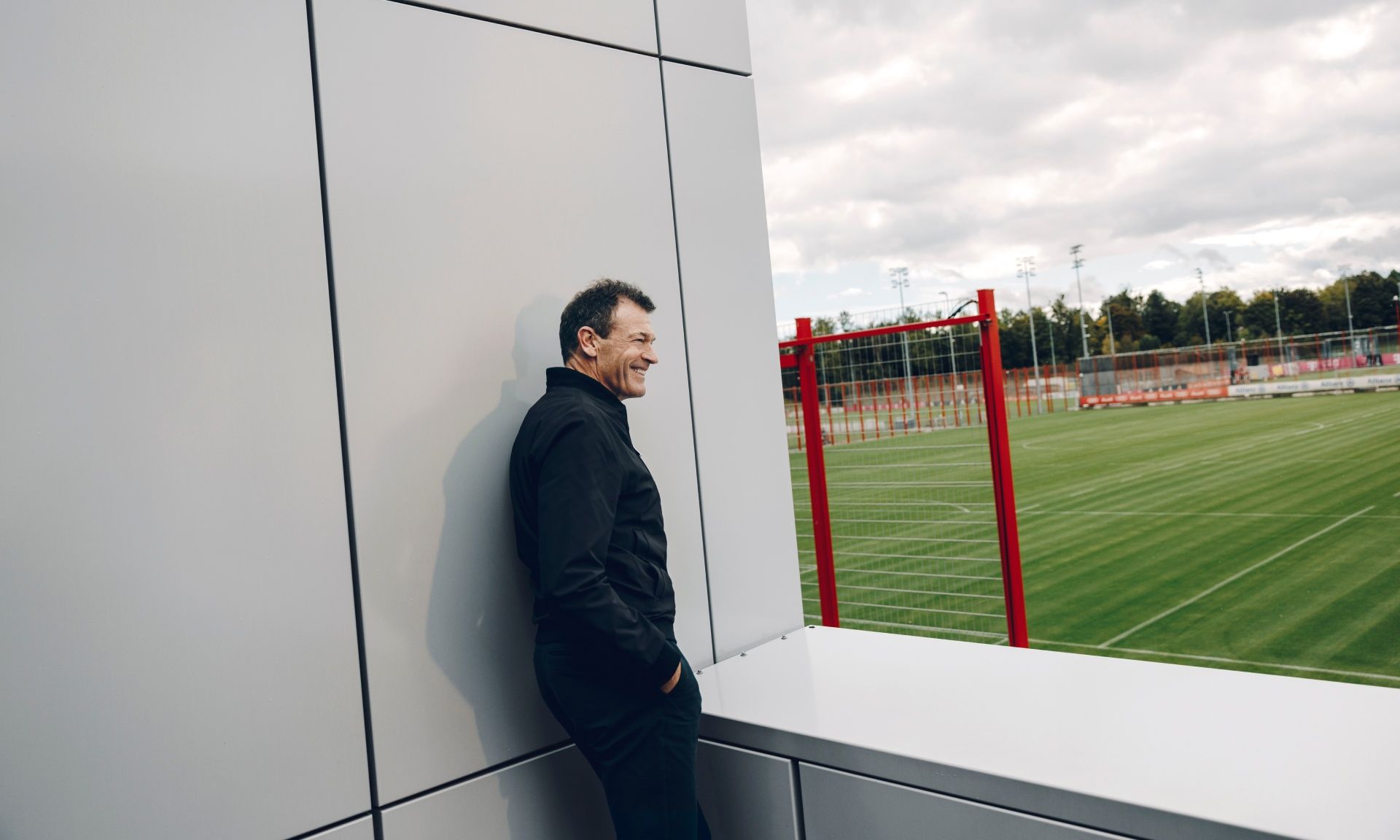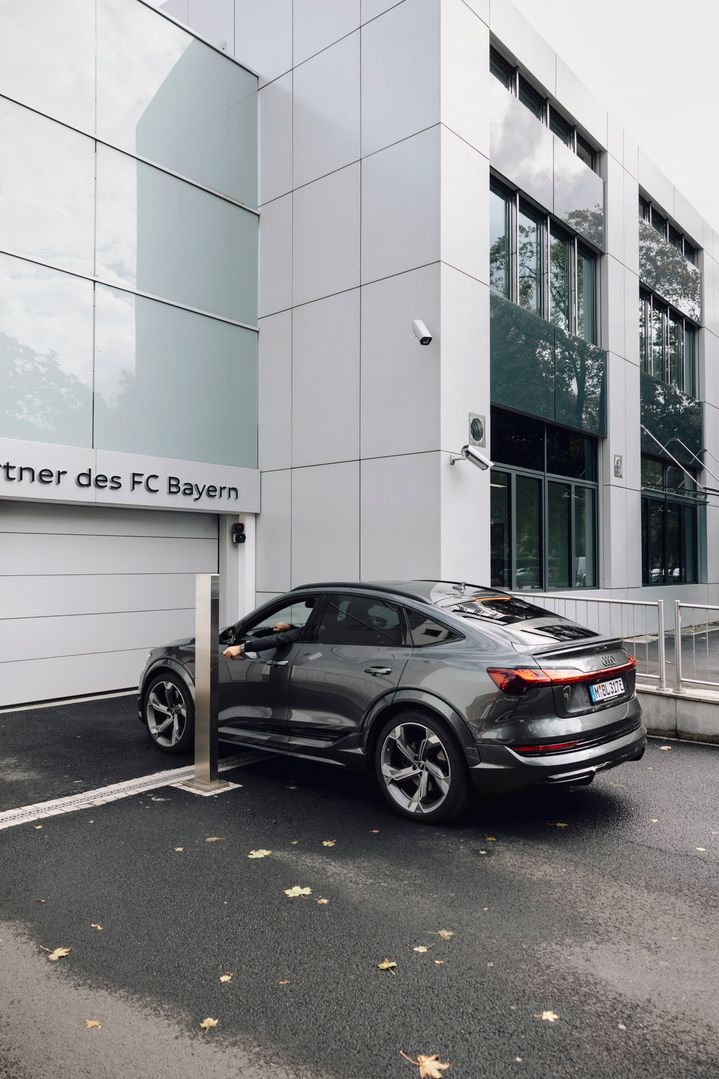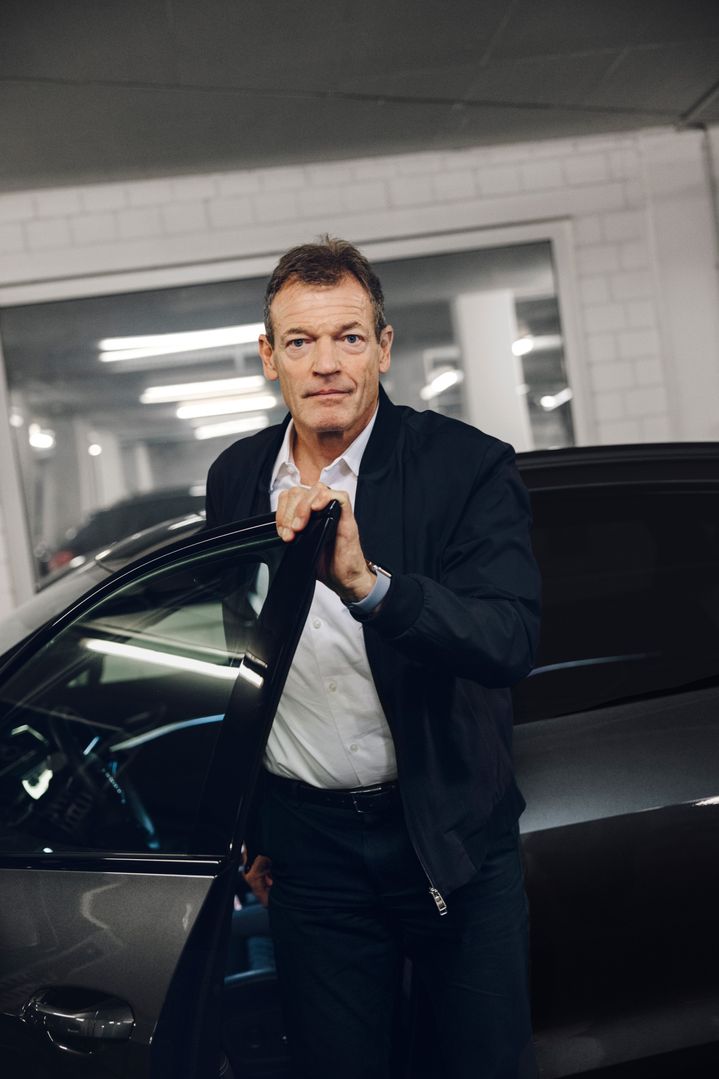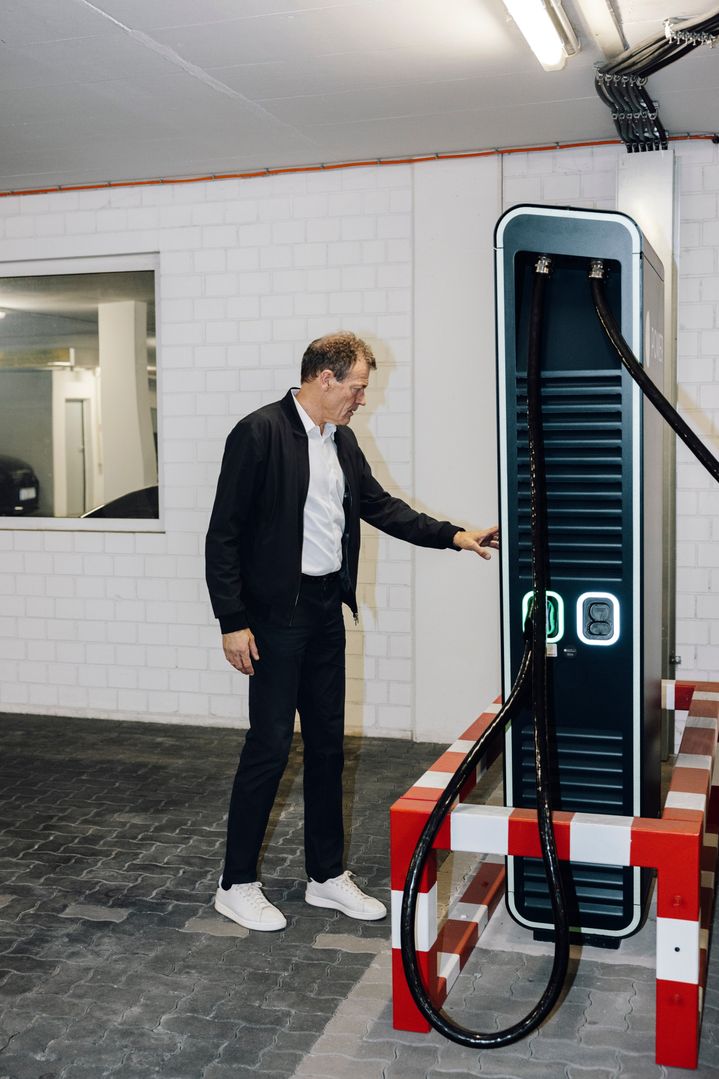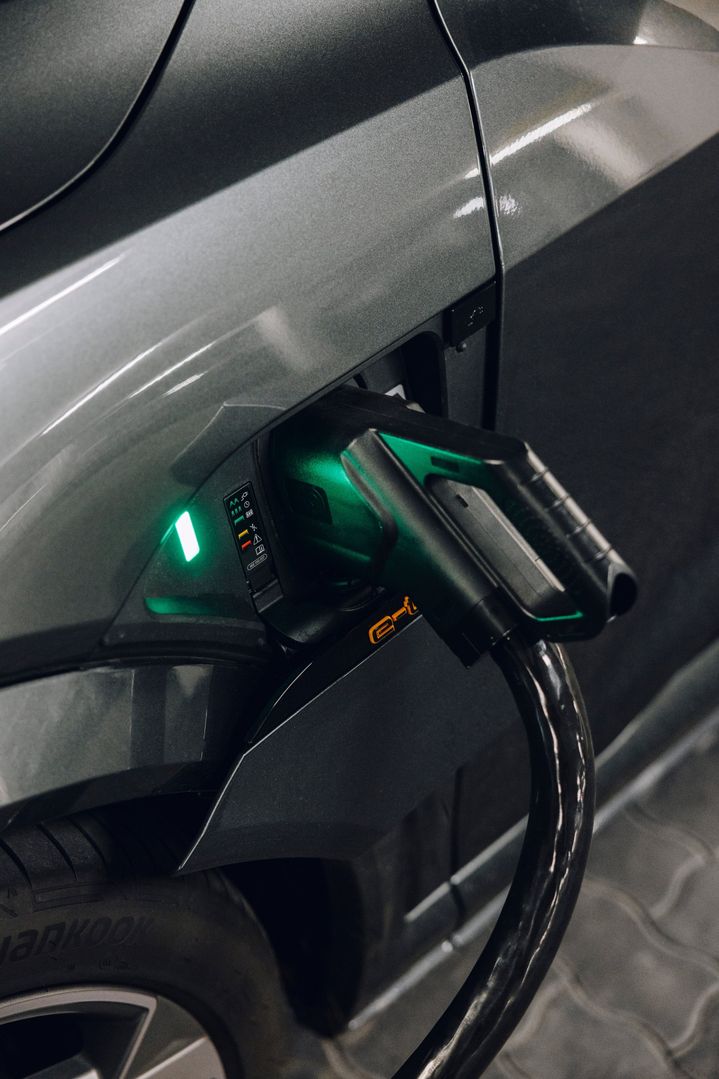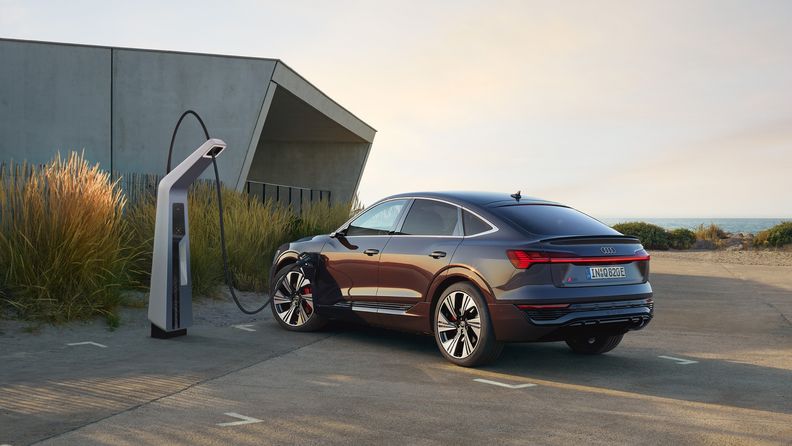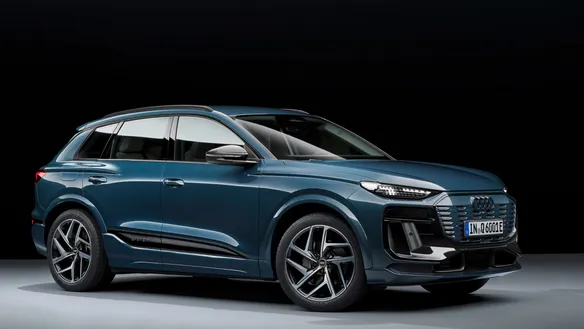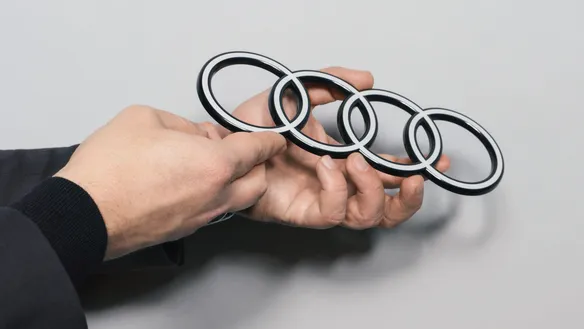“We want and need to be multipliers”
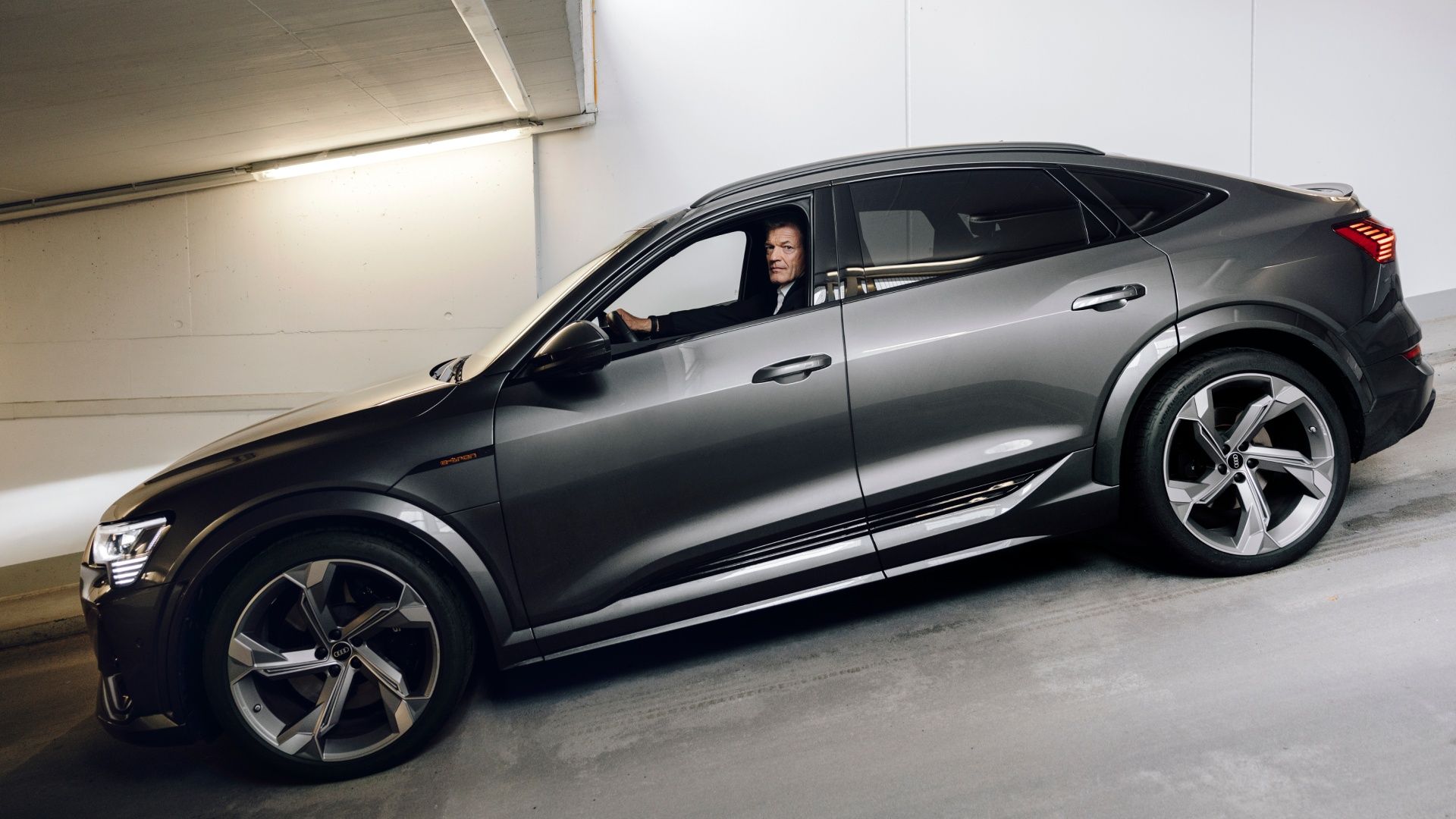
Audi e-tron S Sportback: Power consumption (combined) in kWh/100 km: 28.1–25.7CO₂ emissions (combined) in g/km: 0CO₂ emission class: A
Audi e-tron S Sportback: Power consumption (combined) in kWh/100 km: 28.1–25.7CO₂ emissions (combined) in g/km: 0CO₂ emission class: A
An old, simple adage from the world of football states: ‘It’s what happens on the pitch that matters!’ However, with the appeal and media reach of modern football clubs, Andreas Jung, Board Member at FC Bayern Munich, knows that what happens off the pitch is becoming increasingly important in football. And sometimes, even what happens below the pitch as well.
There is a faint rattling as the entrance gate of the underground car park at the Säbener Straße training ground in Munich opens. Andreas Jung rolls down the steep ramp even more quietly, past a series of Audi vehicles and wall boxes. He parks his Daytona Grey Audi e-tron S Sportback at a brightly lit quick-charging column. ‘If you combine the installations here and at the Allianz Arena, we are without doubt one of the largest charging stations in Germany,’ he explains as he plugs in his Audi. About three years ago, together with its long-standing partner Audi, the club made a conscious decision to focus more on electromobility. More than half of the club’s own Audi fleet is now electric. ‘It was and remains important to us that we are a multiplier for the subject,’ explains Jung on the way through the catacombs. It suits FC Bayern and its own sustainability strategy, he says.
Audi e-tron S Sportback: Power consumption (combined) in kWh/100 km: 28.1–25.7CO₂ emissions (combined) in g/km: 0CO₂ emission class: A
Audi e-tron S Sportback: Power consumption (combined) in kWh/100 km: 28.1–25.7CO₂ emissions (combined) in g/km: 0CO₂ emission class: A
Players and team members can now charge with power of up to 150 kW at a total of 38 charging points. Looking back on the planning phase, Jung recalls that if they had simply installed the charging points, the ‘lights might have gone out’ in neighbouring Giesing. So a specially installed energy storage system provides a buffer for the peaks when, for example, many team members are charging at the same time. ‘We are still a sports club, so it was important for Audi to support us with expertise with regards to what is significant in addition to electric vehicles.’
Jung is convinced that new ideas need time, and a transition phase, be it in sports or mobility. Nevertheless: ‘At the beginning there was a level of uncertainty,’ he says: estimating range, planning for charging times and arranging trips differently are among the points he mentions. But for Jung personally, the focus quickly turned to the pleasantly quiet, almost silent driving, the agile acceleration and the large amount of space. ‘That was important for us as a family in our personal lives and quickly showed us that we don’t have to go without anything in order to be on the road with a clear conscience.’ That good feeling also applies fully to his labradoodle. The cross-breed dog has undergone a considerable transformation since the family switched to an e-tron model, Jung explains. In the past, he recalls, the dog became restless every time he got in the car and did not enjoy trips in the vehicle. ‘Nowadays, he is already in the car before I’ve got the door fully open. He enjoys the peace and quiet, and that sense of calm also spreads to me and everyone in the vehicle.’
‘It must become a matter of course.’
For Andreas Jung, even the little things are important when it comes to positive change. Getting started at all and then developing are what matters, he says. That applies to him in both a private and professional capacity.
Three questions on electromobility for Andreas Jung
01. What do you appreciate about your Audi e-tron?
It’s just fun to be on the road with it. It makes me feel good in every situation. Time and time again, I am impressed by the fast, direct response and the driving experience in general. I believe that anyone who spends a lot of time on the road with an electric vehicle will not want to drive anything else. You can only dedicate yourself to one football club in your life, but with everything else, you have to move with the times.
02. How do you perceive the development of e-mobility?
I have noticed that today people are thinking much more consciously about sustainable actions. E-mobility is playing an increasingly important role in that. Together with Audi, we at FC Bayern want to inspire greater climate protection and set a good example.
03. How can this development be further accelerated?
Everyone should make a contribution within their means so that we can position ourselves more sustainably as a society. This is especially true for professional football clubs. We reach millions of people with what we do as a club. Taking responsibility must become a matter of course.
Audi e-tron S Sportback: Power consumption (combined) in kWh/100 km: 28.1–25.7CO₂ emissions (combined) in g/km: 0CO₂ emission class: A
Audi e-tron S Sportback: Power consumption (combined) in kWh/100 km: 28.1–25.7CO₂ emissions (combined) in g/km: 0CO₂ emission class: A
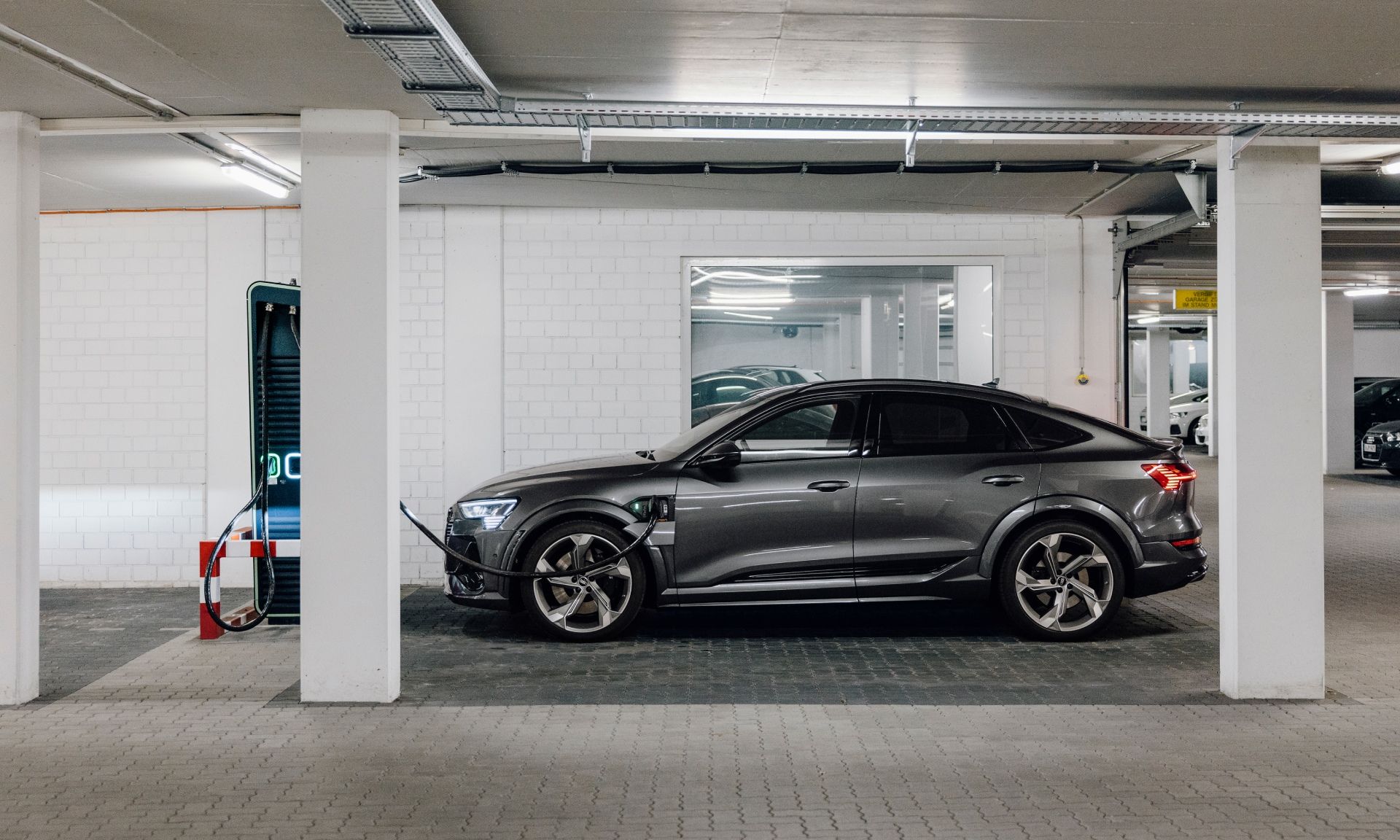
Audi e-tron S Sportback: Power consumption (combined) in kWh/100 km: 28.1–25.7CO₂ emissions (combined) in g/km: 0CO₂ emission class: A
Audi e-tron S Sportback: Power consumption (combined) in kWh/100 km: 28.1–25.7CO₂ emissions (combined) in g/km: 0CO₂ emission class: A
“Together with Audi, we want to inspire greater climate protection – through positive examples of successful transformation.”
